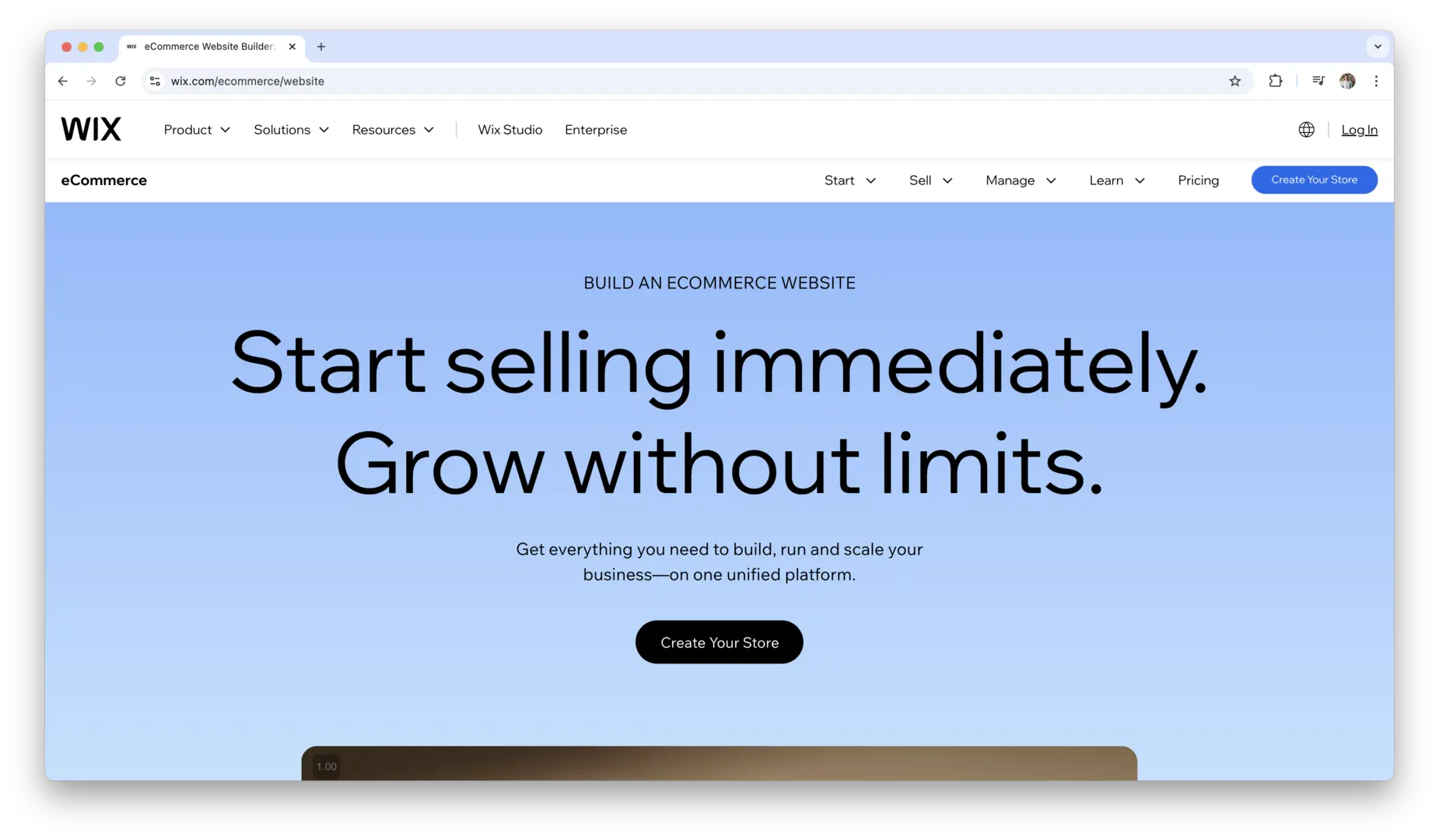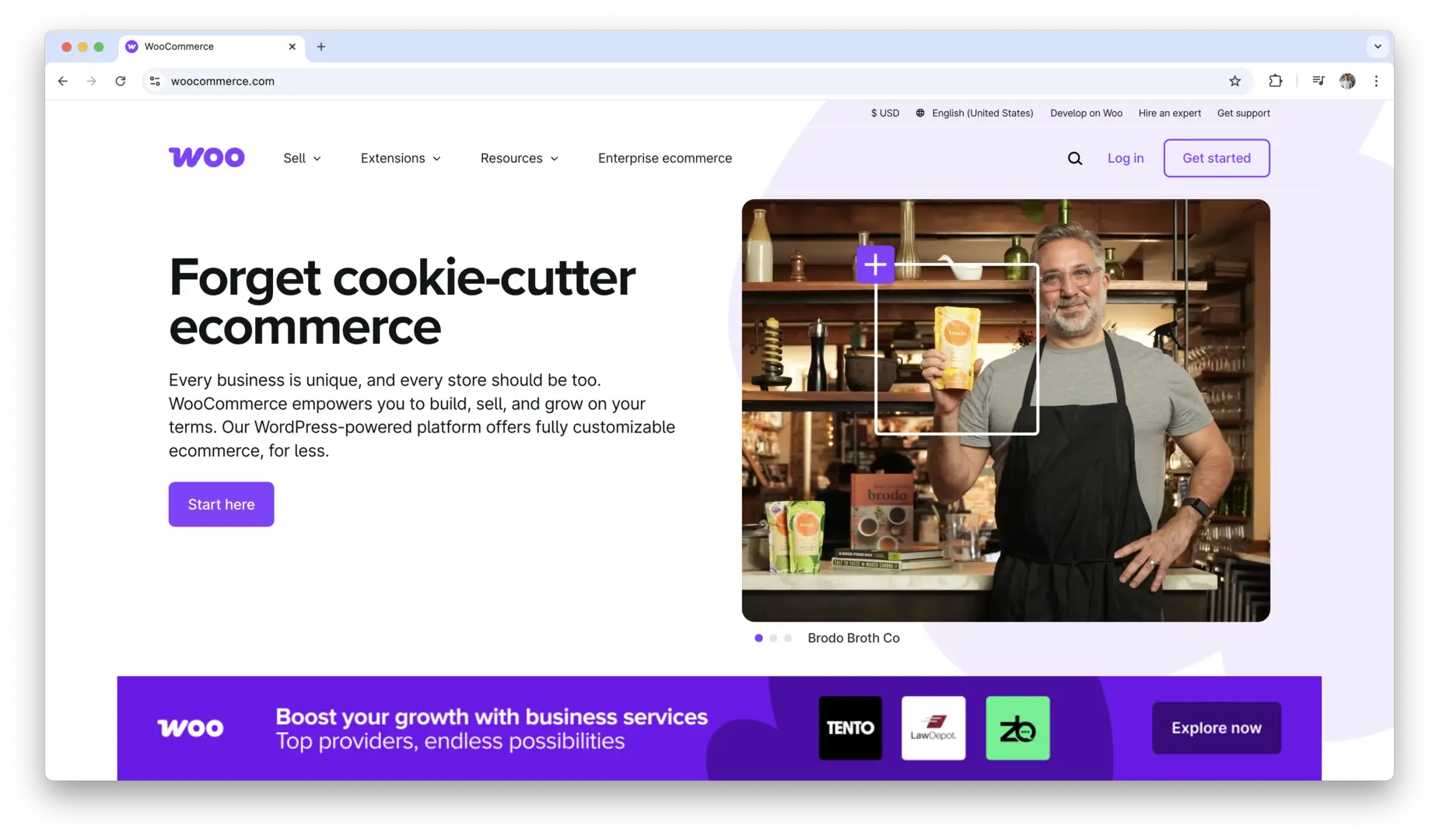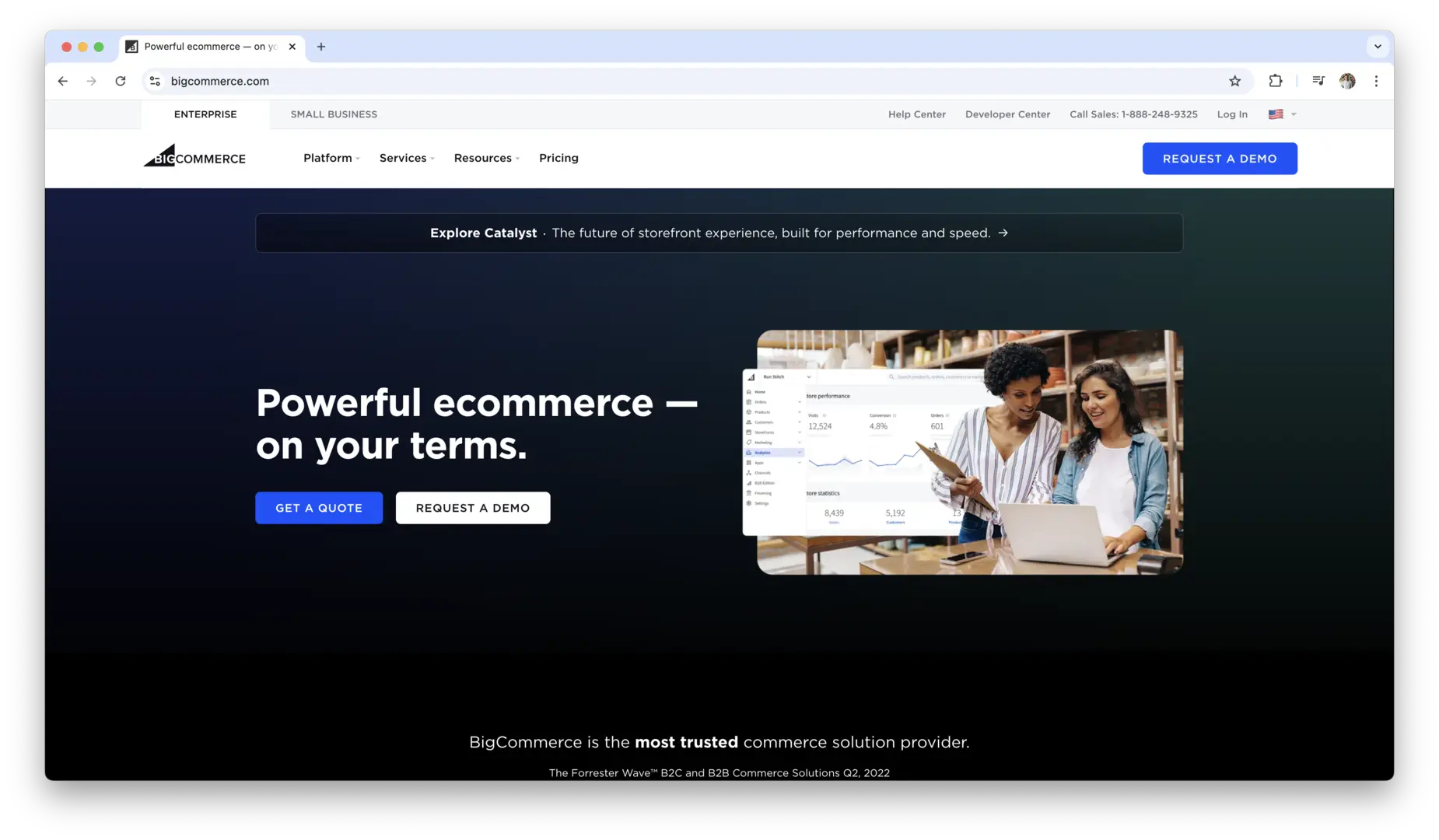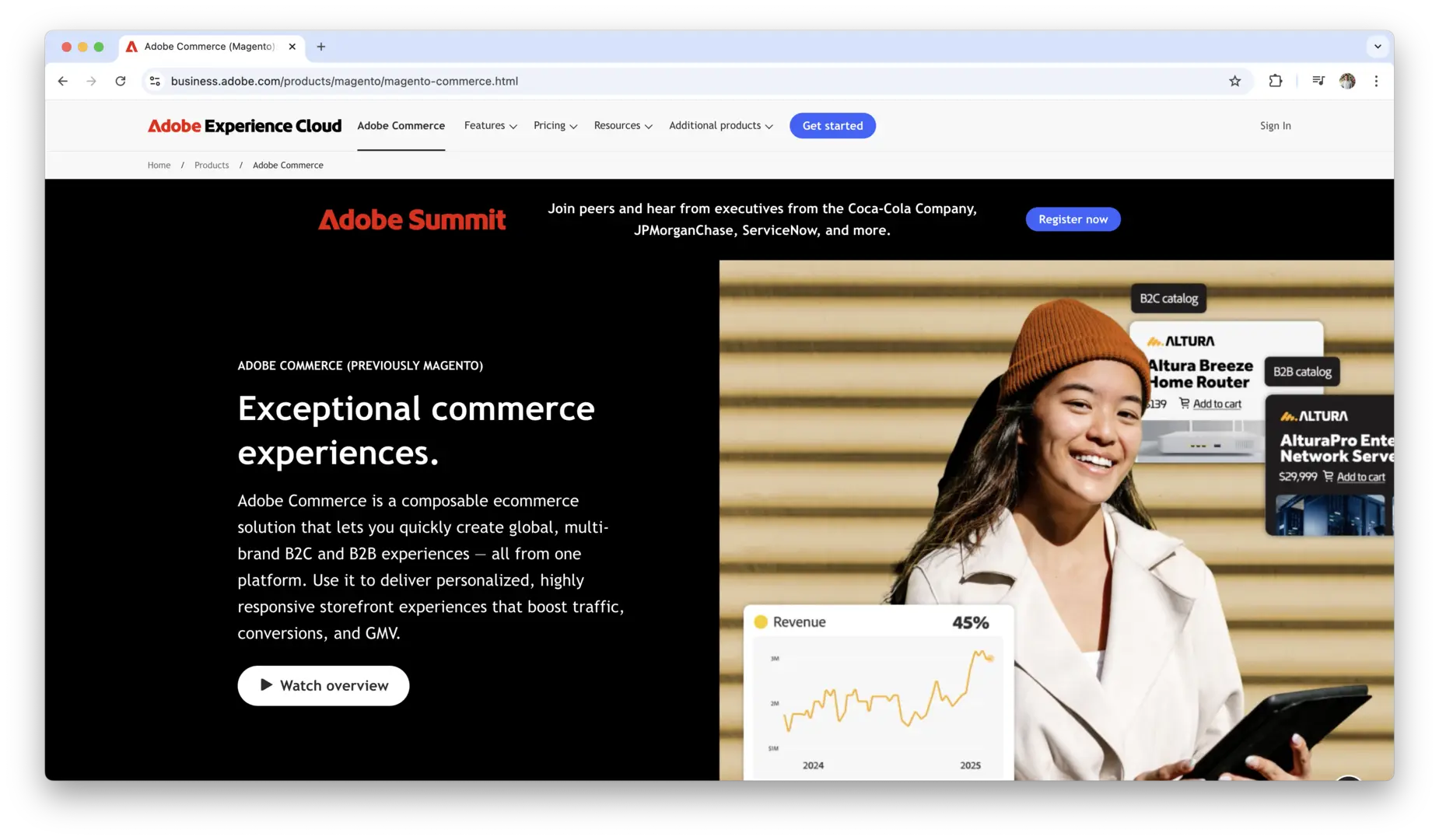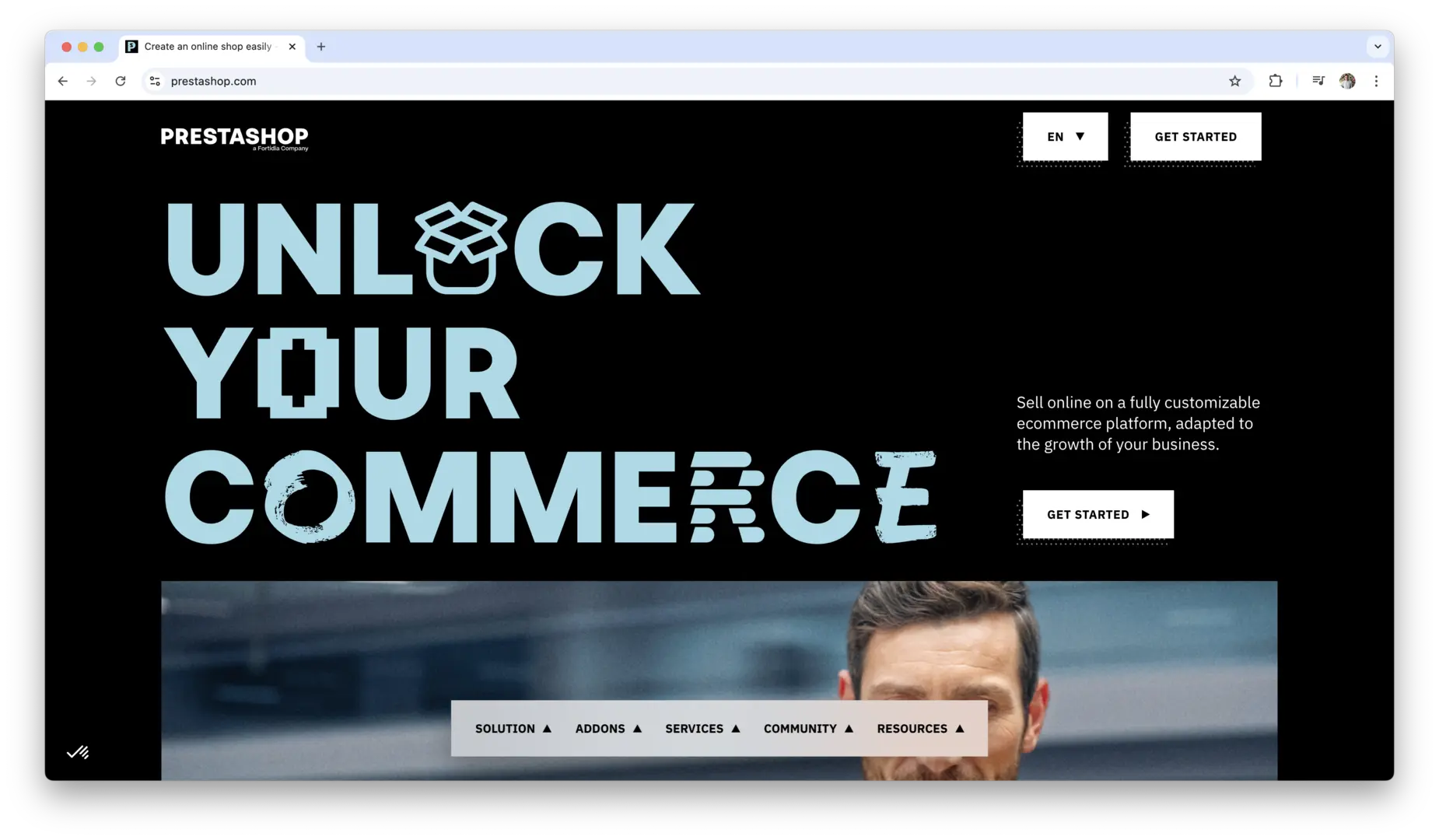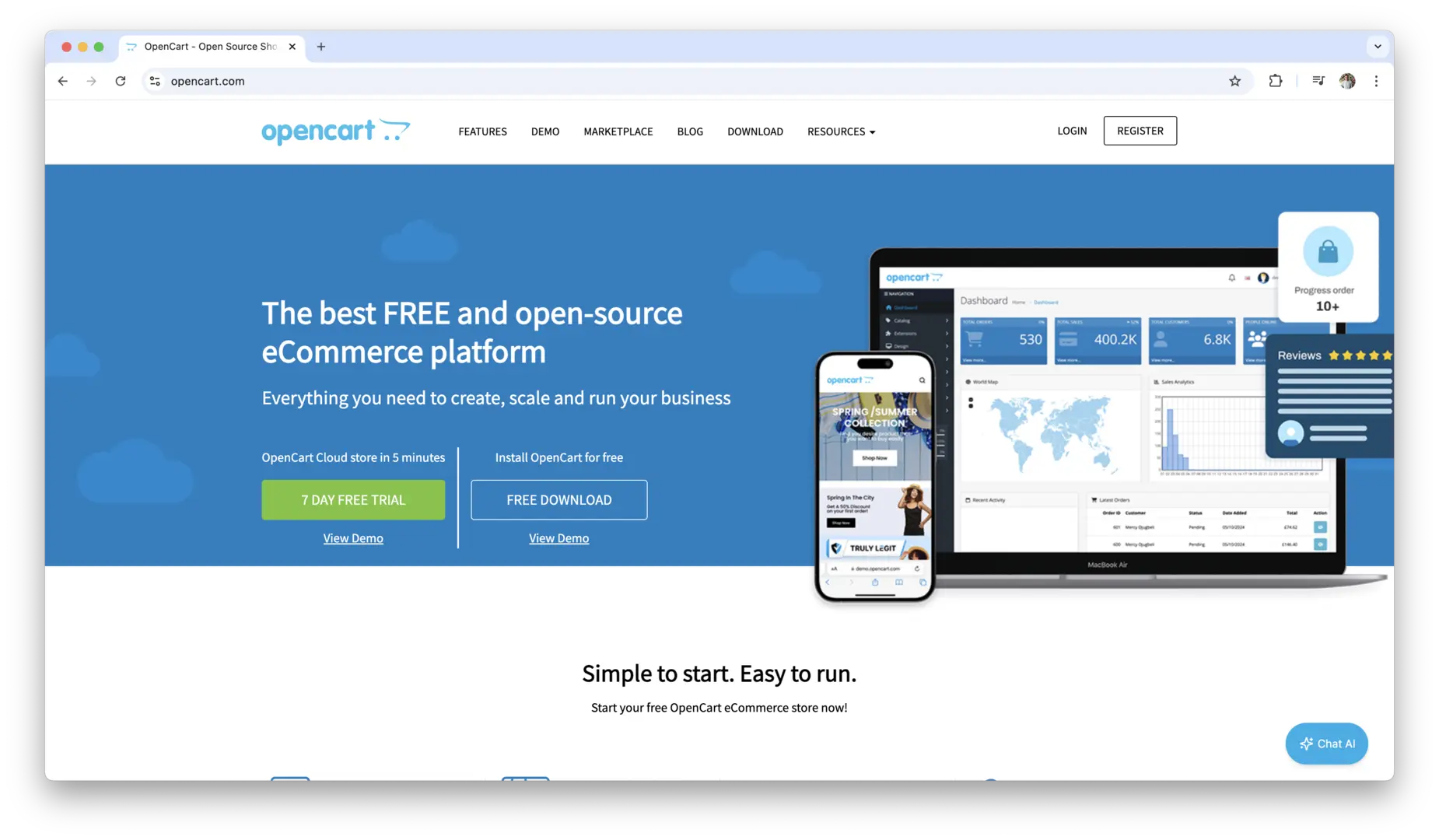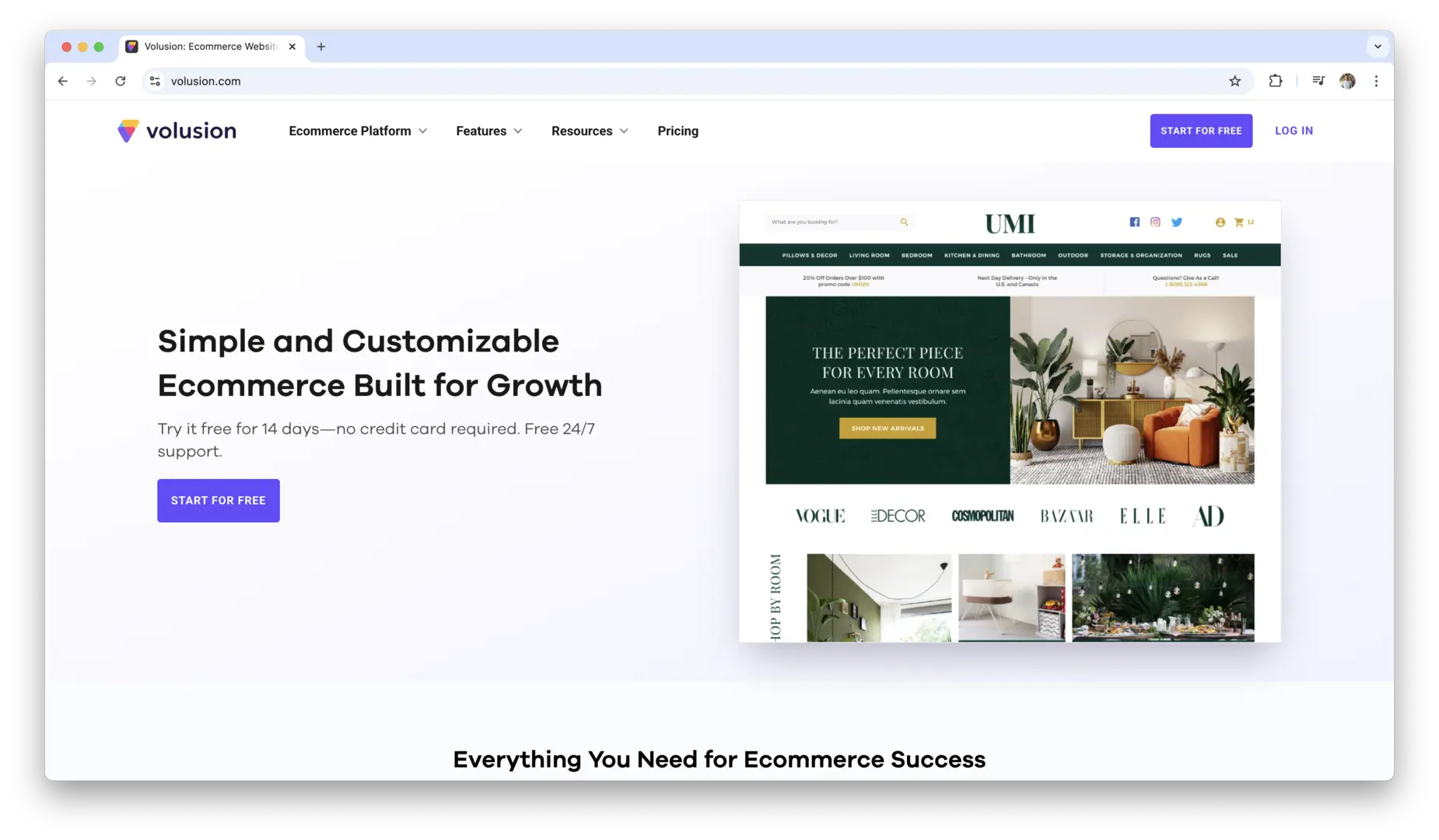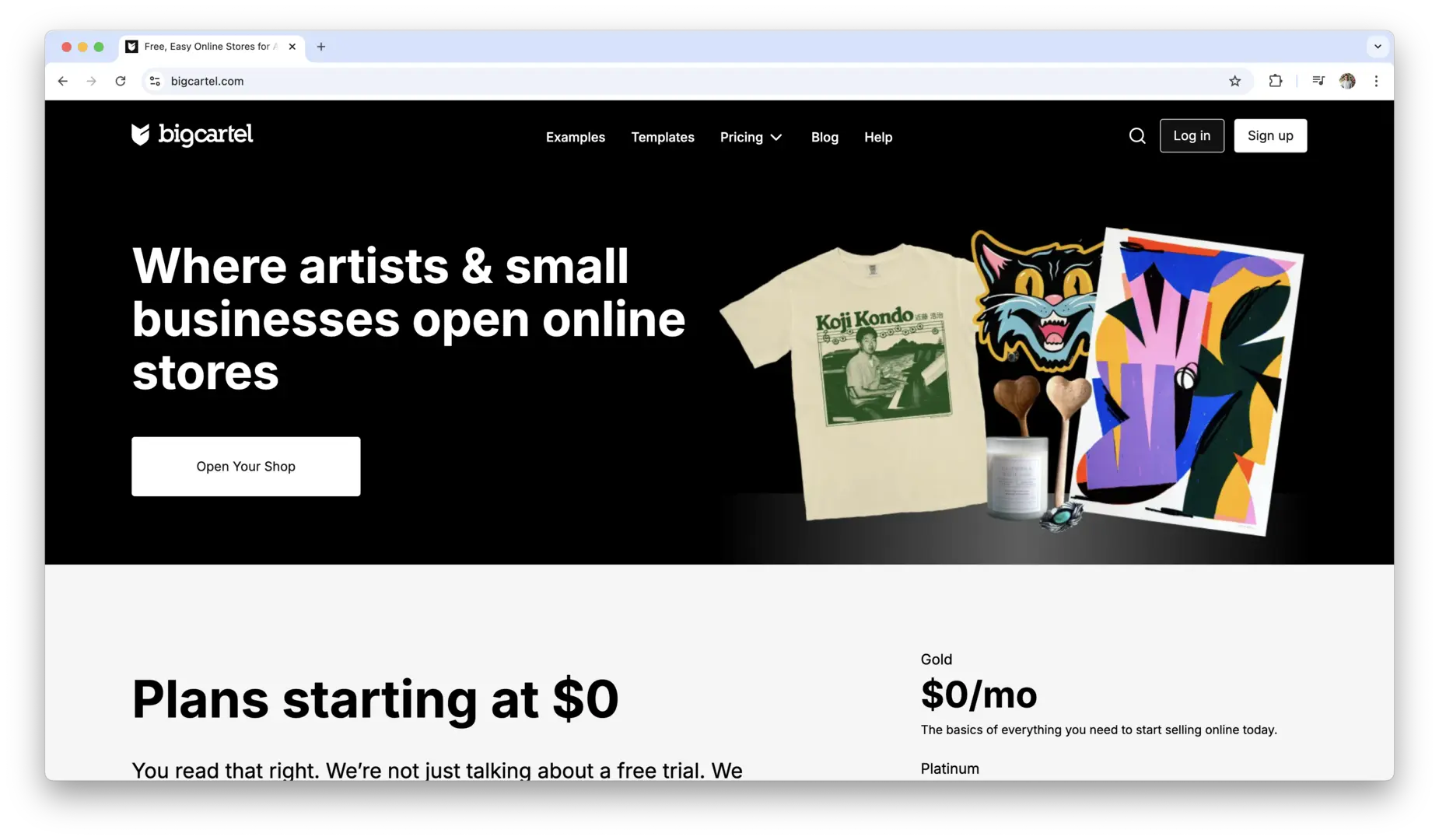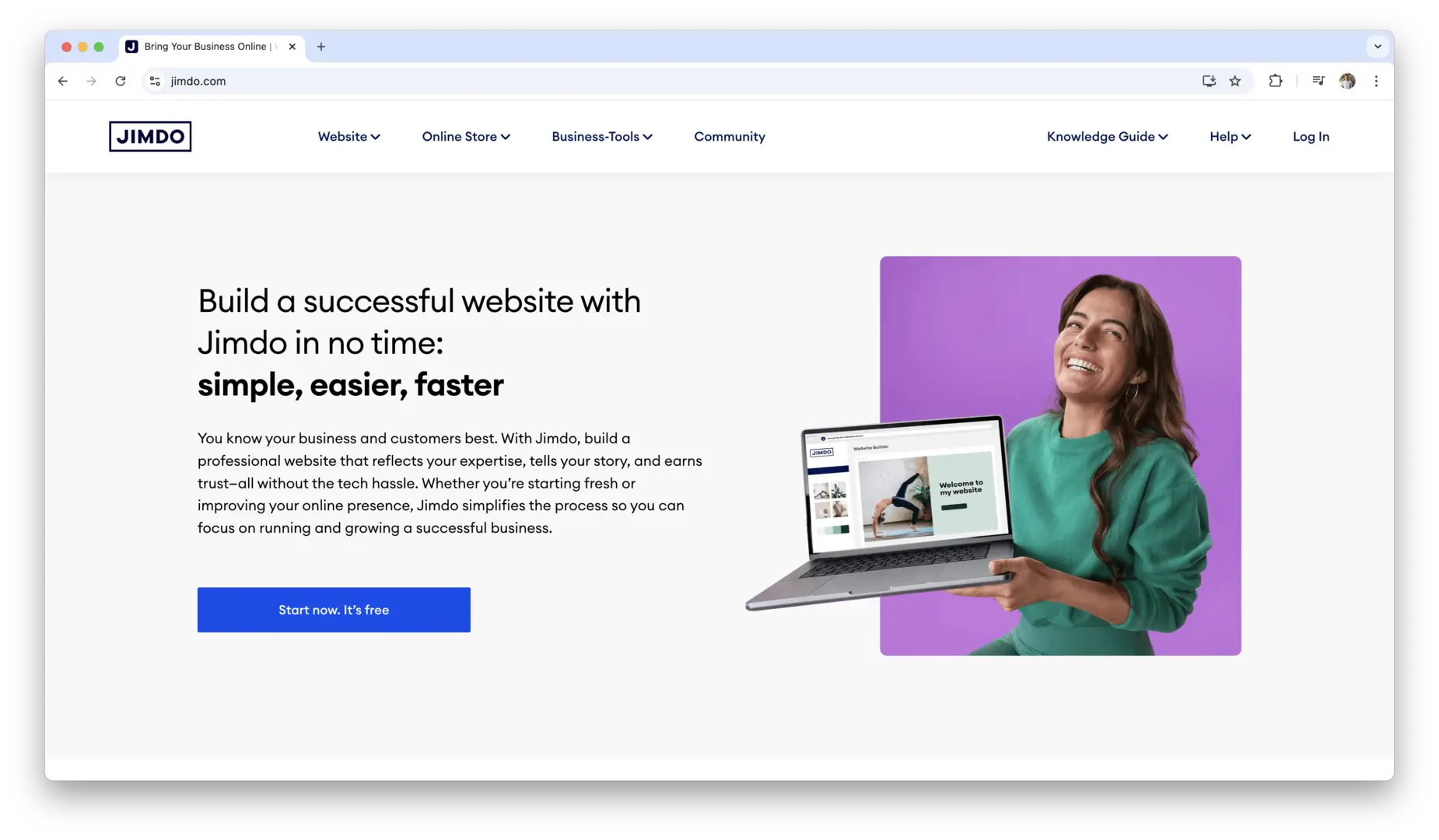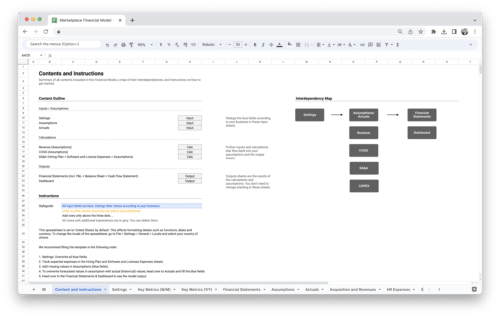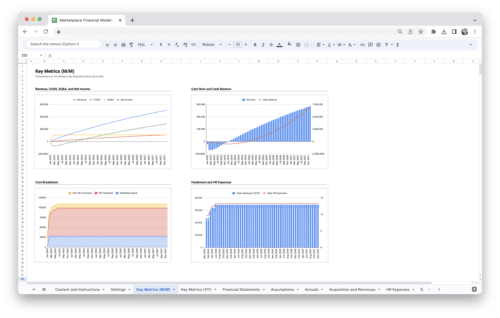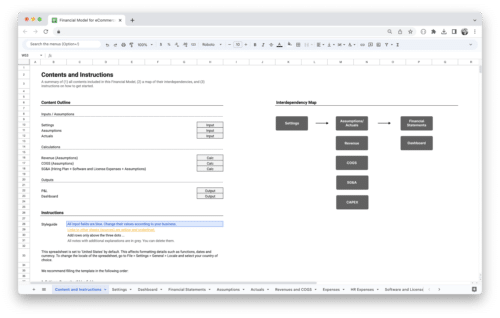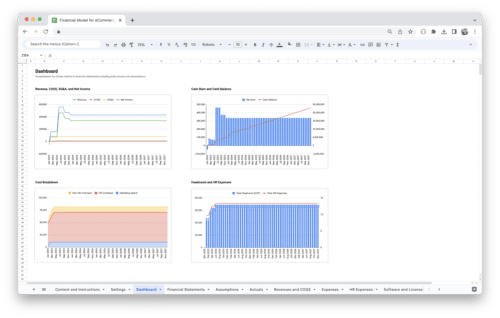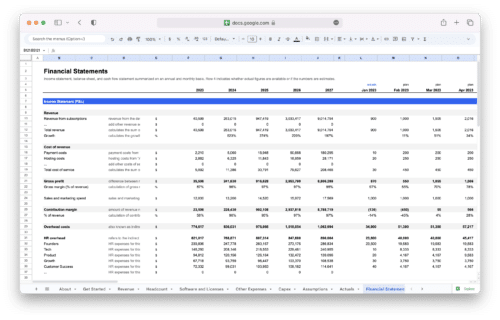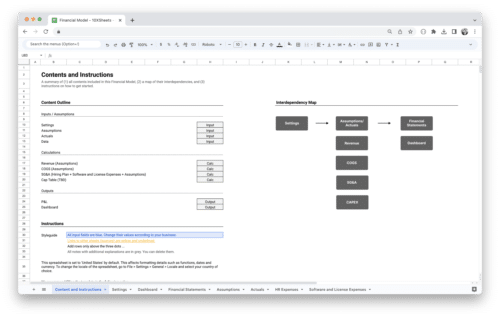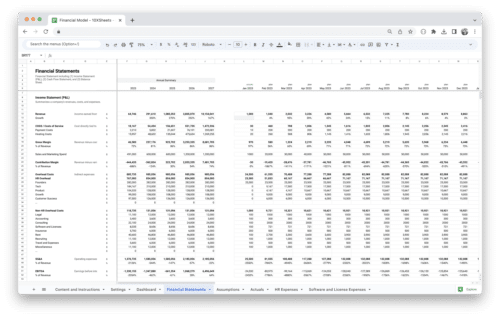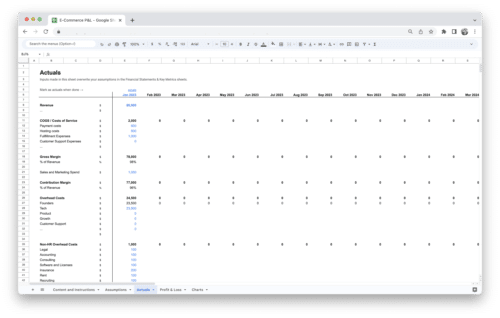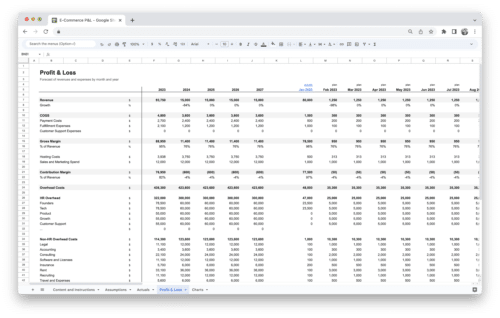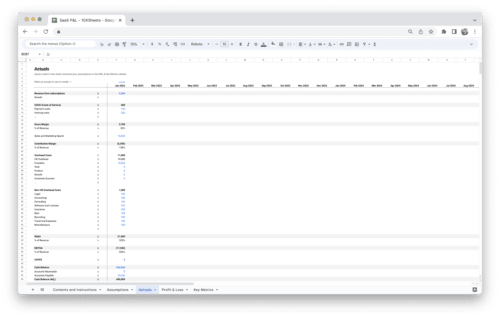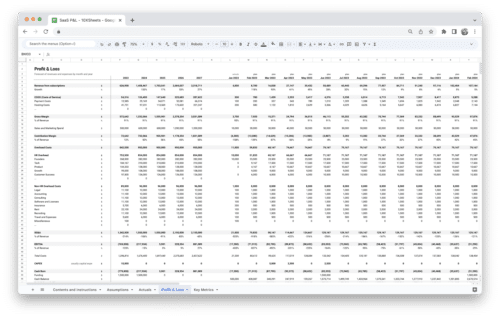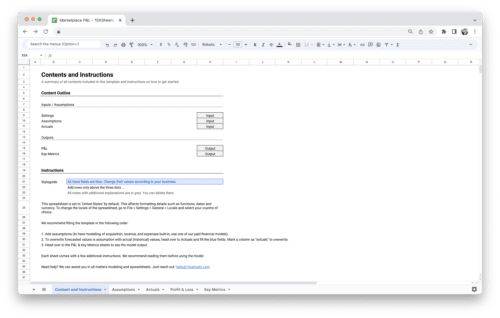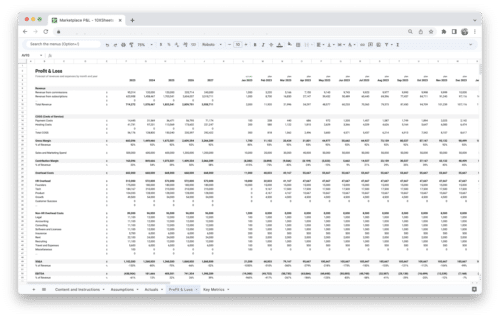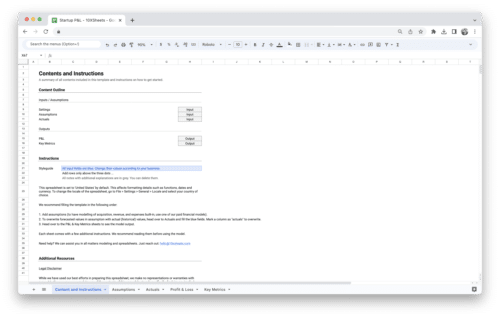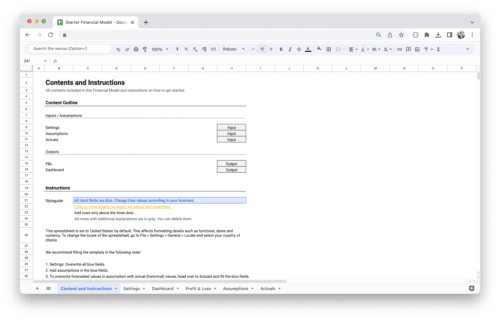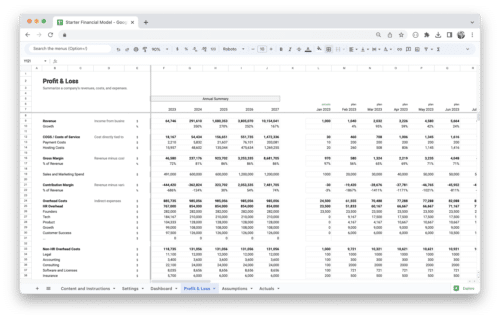Are you looking to start selling online but don’t know which Ecommerce platform to choose? With so many options out there, picking the right one can feel overwhelming. Each platform offers different features, pricing, and customization options, making it crucial to find the one that fits your business needs. Whether you’re a small startup or a large enterprise, the right Ecommerce platform can help you build an effective online store, manage your inventory, process payments securely, and grow your business. This guide will walk you through the best Ecommerce platforms available today, breaking down their strengths and helping you choose the perfect fit for your online store.
What are Ecommerce Platforms?
Ecommerce platforms are software solutions that allow businesses to set up, manage, and run online stores. These platforms provide the necessary tools and services to handle everything from product listing and inventory management to payment processing and customer service. An Ecommerce platform acts as the backbone of any online store, offering both a front-end customer-facing site and a back-end system for administrators to manage the business operations.
The Ecommerce landscape has grown rapidly over the last decade, and the variety of available platforms reflects this growth. Today, there are platforms that cater to businesses of all sizes, from small startups to large enterprises. Whether you’re selling physical products, digital goods, or services, the right Ecommerce platform will help you streamline your business processes and enhance the customer shopping experience.
The Ecommerce Landscape
The Ecommerce industry has become a significant part of the global economy. As of recent years, Ecommerce sales are growing exponentially across various sectors, including retail, digital products, services, and more. A key driver of this growth is the increasing number of consumers who prefer the convenience of shopping online, as well as the continuous advancements in technology that make it easier for businesses to set up and scale their online stores.
With the rise of global Ecommerce platforms and marketplaces like Amazon, eBay, and Etsy, many businesses are now focusing on creating their own online presence, whether through standalone stores or by integrating into larger digital ecosystems. As more businesses migrate online, choosing the right Ecommerce platform is critical to gaining a competitive edge.
Importance of Choosing the Right Ecommerce Platform
- A well-chosen Ecommerce platform can significantly impact the efficiency, scalability, and profitability of your business.
- The right platform streamlines operations, allowing you to focus on growth, sales, and customer engagement instead of technical problems.
- Choosing the wrong platform can lead to costly mistakes, including security vulnerabilities, poor user experience, and difficulty in managing inventory or processing payments.
- A good platform offers the tools needed to scale your business, from handling higher traffic to managing an expanding product catalog and integrating with various marketing tools.
- The right Ecommerce platform can improve customer satisfaction with faster checkout processes, mobile-friendly design, and integrated customer support features.
Key Factors to Consider When Selecting an Ecommerce Platform
- Budget: Assess the platform’s upfront costs, transaction fees, monthly fees, and any hidden costs associated with third-party integrations or premium features.
- Ease of Use: Choose a platform that aligns with your technical expertise or offers a user-friendly interface to simplify store management.
- Scalability: Ensure that the platform can scale as your business grows, from handling more products to managing higher traffic and increasing sales volume.
- Customization: Look for platforms that allow you to customize the design, layout, and functionality of your store to meet your specific needs.
- Payment Gateway Integration: Choose a platform that integrates with popular and reliable payment processors to ensure smooth and secure transactions for your customers.
- Security: Ensure the platform adheres to best practices for security, including SSL certificates, PCI compliance, and other measures to protect customer data.
- Mobile Optimization: Choose a platform that offers mobile-responsive templates or designs, as more customers are shopping on mobile devices.
- SEO and Marketing Tools: Consider platforms that provide built-in SEO features, as well as integrations with marketing tools like email campaigns, social media, and paid advertising.
- Customer Support: Look for platforms that offer strong customer support options, including live chat, email, and phone support, to assist with any issues that arise.
- Third-Party Integrations: Make sure the platform can integrate with your existing tools such as CRM systems, shipping carriers, and accounting software.
Types of Ecommerce Platforms
When choosing an Ecommerce platform, it’s important to understand the different types available. Each type has its unique advantages and challenges, and choosing the right one for your business depends on factors like budget, technical expertise, and long-term goals. Let’s break down the core types of Ecommerce platforms: hosted vs. self-hosted, cloud-based vs. traditional solutions, and SaaS vs. open-source platforms.
Hosted vs. Self-Hosted Platforms
Hosted Ecommerce platforms provide you with a complete package, including hosting, software, and maintenance. All the technical aspects of running your online store are taken care of for you. Platforms like Shopify, BigCommerce, and Wix fall into this category. The beauty of hosted platforms is that they are designed to be user-friendly, making it ideal for entrepreneurs who don’t want to get bogged down with technical details.
On the other hand, self-hosted platforms, like WooCommerce and Adobe Commerce, offer much more flexibility and customization, but they require more involvement from you. You are responsible for securing your hosting, managing server performance, and handling software updates. Self-hosted platforms are great for businesses that need advanced features or have a team of developers to manage their technical infrastructure.
Hosted platforms are generally more straightforward and quicker to set up, while self-hosted platforms give you greater control over the design, functionality, and scalability of your store. However, the trade-off is that self-hosted platforms can be more complex to manage, especially for those without technical expertise.
Cloud-Based vs. Traditional Solutions
Cloud-based Ecommerce platforms, like Shopify or BigCommerce, have become increasingly popular due to their flexibility and scalability. These platforms store your website and data on remote servers, rather than on your own physical hardware. This means you don’t have to worry about the maintenance or performance of physical servers, and it’s easier to scale up as your business grows. Cloud platforms typically come with regular updates, strong security features, and the ability to quickly add new features or integrations.
Traditional Ecommerce solutions, in contrast, may require you to invest in physical infrastructure or dedicated servers to host your site. These are less flexible and may involve more upfront investment, both in terms of money and time. Traditional solutions often appeal to larger businesses that have the resources to manage their own infrastructure or businesses that operate in regions with less reliable cloud service options.
While cloud-based solutions are more common today because they offer scalability and reliability, traditional solutions can still be an option if you prefer complete control over your hosting environment or have specific security requirements that need to be managed in-house.
SaaS vs. Open-Source Platforms
Software as a Service (SaaS) platforms, like Shopify, BigCommerce, and Wix, are subscription-based and offer all-in-one solutions. These platforms provide everything you need to build and maintain an Ecommerce store, from hosting to security updates. They tend to be easy to use, with drag-and-drop features that make setting up your store a breeze. The main benefit of SaaS platforms is that you don’t have to worry about managing technical details, which is ideal for businesses that don’t have in-house IT support.
The downside of SaaS platforms is that they can be less flexible when it comes to customization. You’re generally limited to the templates and features provided by the platform, though many offer add-ons and integrations. Additionally, the monthly subscription cost can add up over time, especially if you need premium features.
Open-source platforms, such as WooCommerce, PrestaShop, and Adobe Commerce, give you more control over the design and functionality of your store. These platforms are free to use, but you’re responsible for hosting, managing software updates, and implementing security measures. Open-source platforms are ideal for businesses with the technical resources to handle customization or those who want a highly tailored store experience. They provide more freedom in terms of features, but with that comes the responsibility of maintenance and security.
Choosing between SaaS and open-source platforms largely depends on your technical expertise and the level of customization your store requires. SaaS platforms are great for businesses that need a quick, easy solution and don’t want to worry about the technical side of things, while open-source platforms are best for businesses that want total control over every aspect of their site.
Top Ecommerce Platforms
Choosing the right Ecommerce platform is crucial for your business’s success. The platform you select will not only affect the design and functionality of your store but also impact how you manage orders, process payments, and grow your brand. Here’s an overview of some of the top Ecommerce platforms that cater to different business needs, from small startups to large enterprises.
Shopify
Shopify is one of the most popular Ecommerce platforms worldwide, known for its ease of use and all-in-one solution. Ideal for small to medium-sized businesses, Shopify offers a simple setup process, making it easy for anyone to create and manage an online store. The platform comes with a variety of customizable templates, a secure checkout system, and a range of integrated payment gateways.
One of Shopify’s strongest features is its extensive app store, which allows you to add extra functionality such as email marketing, shipping integrations, and advanced analytics. Shopify also provides excellent customer support, available 24/7, and integrates seamlessly with social media platforms like Facebook, Instagram, and Pinterest. This makes it an excellent choice for businesses looking to sell on multiple channels and maximize their online presence.
For businesses looking to scale, Shopify offers enterprise-level features through its Shopify Plus plan, which supports high-volume sales and additional customization. However, Shopify is a hosted solution, meaning you will be limited in terms of customization compared to open-source platforms like Adobe Commerce.
Wix eCommerce
Wix is a popular website builder that offers a simple and intuitive platform for building Ecommerce stores. It’s a great choice for small businesses, entrepreneurs, or creatives who want a straightforward setup process without getting bogged down by technicalities. Wix provides drag-and-drop functionality, which makes it incredibly easy to create an online store with minimal effort.
Wix offers a variety of attractive templates, including some that are specifically designed for Ecommerce. The platform also includes essential features like a secure checkout system, payment gateway integration, and inventory management. Additionally, Wix allows you to easily connect with social media platforms for marketing and sales.
While Wix’s Ecommerce features are user-friendly, it may not be as scalable as other platforms like Shopify or BigCommerce. For larger businesses with more complex needs, Wix may not offer the level of customization and flexibility that you’d get with a more advanced platform. However, for small businesses or those just getting started, Wix provides an easy and affordable way to launch an online store.
WooCommerce
WooCommerce is a powerful, open-source Ecommerce plugin for WordPress. It turns any WordPress site into a fully functional online store. WooCommerce is ideal for businesses already using WordPress or those who prefer an open-source solution with more control over customization.
With WooCommerce, you have full flexibility to modify your store’s design, features, and functionality. There are no transaction fees, and you can choose your own hosting provider. This makes WooCommerce a cost-effective solution for small to medium-sized businesses, especially if you’re comfortable managing the technical aspects of your store.
WooCommerce offers a wide range of themes, extensions, and integrations, including payment gateways, shipping options, and inventory management tools. The platform is highly customizable, so you can tailor the store to your specific business needs. However, because it’s self-hosted, you’ll need to manage your hosting, security, and updates. This can be more time-consuming compared to hosted platforms like Shopify.
BigCommerce
BigCommerce is another robust Ecommerce platform designed for businesses that need scalability and flexibility. It’s a cloud-based, hosted solution that provides a comprehensive suite of features for growing businesses. BigCommerce is known for its strong built-in tools, such as advanced SEO features, multi-currency support, and integration with popular third-party applications like Google Analytics and Mailchimp.
What sets BigCommerce apart is its ability to handle large inventories and high-volume sales. The platform offers various pricing plans, including options tailored for enterprise-level businesses. Its tools are designed to simplify business processes, such as shipping and tax management, while also allowing for deep customization of your online store. BigCommerce also integrates with major marketplaces like Amazon and eBay, allowing you to sell across multiple channels without additional hassle.
However, while BigCommerce offers more advanced features than Shopify at the same pricing tier, some users find it a bit more complex to navigate. It’s better suited for businesses that anticipate rapid growth and need an Ecommerce solution that can scale accordingly.
Squarespace
Squarespace is known for its elegant and visually stunning templates, making it an ideal choice for businesses focused on design and branding. It’s particularly popular with artists, photographers, and other creatives who want to showcase their products in a visually appealing way. Squarespace’s Ecommerce capabilities are robust enough for small to medium-sized businesses, and it provides a range of tools to manage products, accept payments, and track inventory.
Like Wix, Squarespace is an all-in-one platform, which means you don’t have to worry about separate hosting or complex integrations. It offers a straightforward setup process, and its drag-and-drop interface is easy to use, even for those without a technical background. Squarespace also has a variety of marketing tools, such as email campaigns and social media integrations, which can help you promote your products.
However, Squarespace may not be the best choice for businesses looking to scale rapidly. Its Ecommerce features are somewhat limited compared to other platforms like Shopify or BigCommerce, and there are fewer third-party integrations available. If you need more customization or advanced features, you may want to explore other platforms.
Adobe Commerce
Adobe Commerce, previously Magento, is an open-source Ecommerce platform that offers extensive customization and scalability for large businesses or those with complex needs. It’s best suited for companies that have an in-house development team or are willing to invest in custom development. Adobe Commerce’s flexible nature allows for complete control over the design and functionality of your store, but it requires a higher level of technical expertise than hosted solutions like Shopify.
Adobe Commerce offers a wide array of features, including multi-store support, multi-language and multi-currency options, and advanced inventory management. The platform is also known for its SEO capabilities and is highly customizable with the ability to integrate with various third-party tools and extensions.
One of the biggest advantages of Adobe Commerce is its ability to handle large-scale businesses with high traffic and a massive product catalog. However, because it’s a self-hosted solution, you’ll need to manage your own hosting, security, and updates, which can be time-consuming and costly.
PrestaShop
PrestaShop is a free, open-source Ecommerce platform that provides a good balance of customization and ease of use. It’s ideal for small to medium-sized businesses that want a flexible platform without the high costs associated with enterprise solutions. PrestaShop offers a range of features, including a built-in shopping cart, product catalog management, and SEO tools.
PrestaShop’s open-source nature means that you have full control over the design and functionality of your store. It also supports numerous third-party modules and integrations, allowing you to extend the platform’s capabilities. However, like Adobe Commerce, PrestaShop requires technical expertise to manage hosting, security, and updates.
PrestaShop is a good option for businesses that want a customizable, cost-effective solution but don’t need the level of complexity and overhead that Adobe Commerce entails. It’s ideal for companies that are willing to invest time in managing their store or have the technical know-how to handle the backend tasks.
OpenCart
OpenCart is another open-source Ecommerce platform designed for businesses looking for a simple and lightweight solution. It’s easy to install and offers a user-friendly admin panel for managing products, customers, and orders. OpenCart comes with a range of built-in features, such as support for multiple languages and currencies, a customizable checkout system, and a variety of payment gateway integrations.
OpenCart is an excellent option for small to medium-sized businesses that need an affordable and straightforward Ecommerce platform. While it lacks some of the advanced features of platforms like Adobe Commerce or BigCommerce, OpenCart’s simplicity makes it an attractive option for businesses with basic Ecommerce needs. However, since it’s self-hosted, you will need to manage hosting, security, and updates on your own.
Volusion
Volusion is a cloud-based Ecommerce platform that offers an all-in-one solution for building, managing, and growing your online store. It provides various features such as built-in SEO tools, inventory management, and easy payment gateway integrations. Volusion also offers features like automated email marketing and detailed analytics, which can help you optimize your store and grow your business. While Volusion’s design flexibility may not be as extensive as other platforms, it’s a solid choice for small businesses looking for a user-friendly, affordable Ecommerce solution.
Shift4Shop
3dcart, now rebranded as Shift4Shop, is a feature-rich Ecommerce platform designed for businesses that need a customizable, scalable solution. It offers a wide range of tools for product management, order fulfillment, and payment processing. Shift4Shop also includes built-in SEO features, customer management tools, and integrated shipping options. The platform provides a free plan for businesses that use Shift4’s payment gateway, making it a great option for cost-conscious businesses. However, Shift4Shop’s templates may not be as modern or user-friendly as other platforms, making it better suited for businesses with some technical know-how.
Ecwid
Ecwid is a simple, cloud-based Ecommerce platform that integrates seamlessly with existing websites, making it ideal for businesses looking to add an online store to an already established site. Ecwid supports multichannel selling, allowing businesses to sell across multiple platforms such as social media, marketplaces, and their own website. It’s user-friendly and offers essential features like inventory management, payment processing, and order tracking. Ecwid is perfect for businesses that want to sell online without having to build a new website from scratch. The platform’s pricing is affordable, and it’s easy to set up and manage, though it may not offer the advanced features that other platforms provide.
Weebly
Weebly, owned by Square, is a website builder that also offers Ecommerce functionality. It’s a great platform for small businesses and startups that need a simple and affordable way to sell online. Weebly provides easy drag-and-drop website building tools, integrated payment processing via Square, and mobile optimization, which makes it a convenient choice for small-scale operations. While Weebly’s Ecommerce features are basic compared to more robust platforms like Shopify, it’s a solid option for businesses that don’t need complex features and are looking to get started with minimal effort.
Big Cartel
Big Cartel is a user-friendly Ecommerce platform designed for small businesses and artists who want to sell products online without dealing with complicated setup processes. It’s particularly well-suited for businesses with smaller product catalogs. Big Cartel offers simple features like product management, payment processing, and inventory tracking. It’s a great choice for startups, creatives, and small businesses that don’t need advanced Ecommerce features. Big Cartel’s pricing is affordable, and the platform’s minimalistic approach allows businesses to get online quickly, though it may not offer the scalability or advanced features that larger businesses need.
Jimdo
Jimdo is another simple, user-friendly Ecommerce platform that allows you to create a professional online store quickly. It’s ideal for small businesses that want an easy-to-use platform without needing coding experience. Jimdo’s AI-based setup process can help you build a website in minutes, and the platform offers built-in payment gateways, product management, and SEO tools. Jimdo may not offer the extensive customization options of more advanced platforms like Shopify or WooCommerce, but it’s a great option for those seeking a no-fuss Ecommerce solution.
Choosing the right Ecommerce platform depends on your business’s size, needs, and resources. Each of these platforms offers unique benefits, so it’s important to evaluate your goals and select the one that aligns with your vision for growth and customer experience.
Ecommerce Platforms Features to Look For
When choosing an Ecommerce platform, it’s crucial to ensure that the features align with your business needs and provide a smooth experience for both you and your customers. A well-rounded platform should offer a blend of functionality, ease of use, and scalability. Here are the key features you should look for when evaluating different Ecommerce platforms.
User-Friendly Interface and Design Flexibility
One of the most important aspects of an Ecommerce platform is its user interface (UI). A clean, intuitive UI makes it easier for you to manage your online store, while also ensuring that your customers have a smooth shopping experience. A user-friendly platform helps you avoid wasting time on technical setup or troubleshooting, letting you focus on growing your business.
Design flexibility is also a critical factor. A good Ecommerce platform should offer customizable templates and themes that align with your brand and provide an aesthetically pleasing shopping experience. The ability to easily adjust and tweak your site’s layout, fonts, colors, and content is important as your business evolves. Many platforms offer drag-and-drop design tools, which are especially useful for users with limited technical knowledge. You’ll also want a platform that allows for custom features or adjustments as your business needs become more complex.
Payment Gateway Integration
Payment processing is at the heart of any Ecommerce store. A reliable payment gateway allows you to securely handle transactions and offer multiple payment options to your customers. The best Ecommerce platforms come with a wide range of built-in payment gateway integrations, allowing you to accept credit cards, PayPal, Apple Pay, and other popular methods. It’s also important to choose a platform that supports international payment gateways, especially if you plan on selling to customers abroad.
You should also pay attention to transaction fees, as these can add up depending on the platform and payment gateway you use. Some platforms, like Shopify, have their own payment gateway, which can offer lower transaction fees compared to third-party gateways. It’s a good idea to calculate the potential costs associated with different payment methods to ensure you choose the most cost-effective solution for your business.
Mobile Responsiveness and Optimization
With more customers shopping from their smartphones than ever before, mobile optimization is no longer optional—it’s essential. Your Ecommerce platform should automatically provide a mobile-responsive design, meaning your store should look great and function smoothly across all devices. Mobile-friendly sites not only improve the user experience but can also boost your search engine rankings, as Google prioritizes mobile-friendly websites in its search results.
Mobile optimization goes beyond just having a responsive design. You should also ensure that your platform supports mobile-friendly checkout processes. This includes easy navigation, fast loading times, and the ability for customers to make purchases without any friction. A seamless mobile experience will increase your conversion rate and reduce cart abandonment.
Scalability and Performance
As your business grows, your Ecommerce platform should be able to grow with you. Scalability is the ability to expand your online store, handle an increased number of products, manage a larger customer base, and support higher traffic volumes without sacrificing performance. Choosing a platform with scalability in mind ensures you won’t outgrow it as your business expands.
Look for a platform that can scale in terms of product inventory, customer management, and sales volume. Some platforms offer tiered pricing models, allowing you to upgrade as your needs evolve. It’s also important to ensure that the platform is optimized for fast load times. A slow website can hurt your user experience and affect your search engine ranking. Ensure that the platform you choose can handle your future business needs while maintaining strong performance and speed.
Security Features (SSL, PCI Compliance)
Security is a top priority for any online store. Not only do you need to protect your customers’ sensitive information, but you also need to ensure that your site is compliant with industry standards. Look for platforms that offer SSL (Secure Socket Layer) encryption, which ensures that all data transferred between the website and customers is encrypted and secure.
PCI compliance is another important security consideration. The Payment Card Industry Data Security Standard (PCI DSS) sets the guidelines for safely handling credit card information. A secure platform should adhere to these guidelines to ensure that credit card data is handled in a safe and compliant manner. Platforms that offer built-in security features and are PCI compliant will give your customers confidence in their purchases, helping to reduce abandoned carts and increasing trust in your business.
SEO and Marketing Tools
A good Ecommerce platform should make it easy for you to optimize your site for search engines. SEO-friendly platforms allow you to customize URLs, meta descriptions, product descriptions, and images, all of which play a significant role in boosting your visibility on search engines like Google.
In addition to SEO capabilities, your Ecommerce platform should offer integrated marketing tools that help you drive traffic to your store. These can include email marketing integrations, social media sharing options, discount codes, and affiliate marketing tools. Some platforms also offer built-in blog features, which allow you to create content that can improve your SEO while engaging your audience.
Look for platforms that allow you to connect your store to social media accounts or third-party apps like Google Ads, Facebook Ads, and Instagram Shopping. These marketing integrations are essential for reaching a wider audience and growing your customer base.
Customer Support and Community
Running an Ecommerce store can be a complex task, and having reliable customer support is crucial for smooth operations. Ensure that the platform you choose offers responsive support via multiple channels such as live chat, email, and phone. 24/7 support is ideal, especially if you are managing your store across different time zones.
Another valuable resource is the platform’s community. A strong user community means you’ll have access to valuable insights, tutorials, forums, and user-generated content that can help you solve problems and improve your store. A vibrant community of fellow store owners can be a great source of advice, and it’s helpful to know that you have support from both the platform’s team and the broader user base.
Investing in a platform with great customer support and a helpful community will make your Ecommerce journey much easier. Whether you need technical help, marketing advice, or just a place to share ideas, reliable support can help ensure that your store runs smoothly.
How to Choose the Best Ecommerce Platform for Your Business?
Selecting the right Ecommerce platform is not a one-size-fits-all decision. Your choice should be based on a variety of factors including your business size, goals, budget, and the specific features you need. The platform you choose will directly impact your ability to grow, manage operations efficiently, and provide an excellent customer experience. Let’s explore the key factors that should influence your platform selection.
Platform Selection Based on Business Size and Needs
The size of your business plays a significant role in choosing the right Ecommerce platform. For small businesses and startups, simplicity and ease of use are often top priorities. In these cases, hosted solutions like Shopify or Wix are ideal because they offer quick setup, built-in hosting, and user-friendly tools that require little to no technical expertise. These platforms are great for businesses with limited product ranges and lower traffic expectations, but they are also scalable if your business begins to grow.
As your business expands, you may find that a more robust platform is necessary. For medium-sized businesses or those experiencing rapid growth, platforms like BigCommerce or WooCommerce may be more appropriate. These platforms offer more advanced features such as multi-channel selling, detailed inventory management, and customizable options to fit a larger product catalog and higher transaction volumes. These platforms also offer more flexibility for integrating with third-party applications, which can be critical for businesses looking to streamline operations.
For large businesses or enterprises with complex needs, an open-source platform like Adobe Commerce or PrestaShop may be the best fit. These platforms offer high scalability, allowing businesses to add features, integrate with custom applications, and scale globally. However, they do require more technical expertise, which is why businesses of this size often have in-house development teams or work with third-party agencies. If you expect to deal with high volumes of traffic, a self-hosted solution or a dedicated enterprise-level platform will provide the level of customization and control necessary for long-term success.
Matching Features to Your Business Goals
Once you’ve determined your business size and growth trajectory, it’s essential to match your platform’s features to your business goals. Every business has unique needs, and understanding what features you prioritize will help you select the best platform.
If your primary goal is to provide a seamless, visually appealing shopping experience, platforms like Shopify or Squarespace, which offer robust design flexibility and user-friendly templates, may be the best fit. These platforms give you the freedom to create a beautiful storefront without requiring extensive web development skills.
If your focus is on scalability and growth, you should prioritize platforms that can grow with you. Platforms like BigCommerce, WooCommerce, and Adobe Commerce offer comprehensive tools for inventory management, multi-currency support, and global scalability. These features are important if you plan to expand internationally or have a diverse product range that requires customization. Furthermore, if you’re looking to integrate your store with existing business systems, such as ERPs or CRMs, platforms that offer robust API support, like WooCommerce and Adobe Commerce, will allow you to automate processes and improve efficiency.
For businesses focused on marketing, SEO, and customer engagement, it’s important to consider platforms that offer built-in marketing tools and integrations. Shopify and BigCommerce come with powerful SEO features and integrations with email marketing tools, social media platforms, and analytics services. These tools will help you grow your audience, track customer behavior, and optimize your marketing campaigns.
Lastly, consider platforms that provide strong customer service capabilities. If customer support and engagement are central to your business goals, choosing a platform that offers robust CRM features, live chat integrations, and customer service tools will help you create a loyal customer base and improve your service offerings.
Cost vs. Benefit Analysis for Different Platforms
Cost is a major factor when choosing an Ecommerce platform, but it should be evaluated alongside the benefits that each platform offers. The initial cost of setting up an Ecommerce store can vary significantly depending on whether you opt for a hosted solution or a self-hosted one.
For small businesses or startups, subscription-based hosted platforms like Shopify or Wix are generally more affordable in terms of upfront costs. These platforms have monthly subscription fees that start at relatively low prices and include hosting, security, and updates. However, you should also consider any additional costs for premium themes, apps, or integrations. While the ongoing costs are predictable, they can rise if you need more advanced features or if your business expands quickly.
On the other hand, self-hosted platforms like WooCommerce or Adobe Commerce are free to use but come with hidden costs such as hosting fees, domain registration, security certificates, and potentially the need for a developer to customize the platform. These platforms are more cost-effective in the long term if you have the resources to manage them, but they may require a higher initial investment.
It’s also essential to think about transaction fees. Some platforms charge transaction fees on each sale, which can add up over time, especially as your store grows. Shopify, for instance, has its own payment gateway, which offers lower transaction fees compared to third-party gateways. BigCommerce offers a similar setup. If you’re planning on using a third-party payment processor, ensure that the platform supports it and take note of any extra fees.
In the long run, the benefit of a more expensive platform may outweigh the cost if it provides the features and support necessary to scale your business. For example, investing in a platform like BigCommerce or Adobe Commerce may require higher upfront costs, but these platforms offer more customization, scalability, and integrations that could lead to greater profitability as your business expands.
Lastly, factor in the potential ROI from the platform’s marketing and SEO tools. Platforms that offer strong SEO features or integrations with marketing tools can help you reach a larger audience, convert visitors into customers, and ultimately increase your sales. If the platform’s features help drive traffic to your store, they may justify the cost in the form of higher conversion rates and increased revenue.
When choosing an Ecommerce platform, balance the initial costs with the long-term benefits. Consider what you’re willing to invest in terms of time, money, and resources and choose a platform that aligns with both your current needs and future goals.
Common Pitfalls to Avoid When Choosing an Ecommerce Platform
Choosing the wrong Ecommerce platform can set your business back, leading to frustration, unnecessary expenses, and wasted time. To help you avoid making costly mistakes, here are the most common pitfalls that businesses face when selecting an Ecommerce platform.
- Overlooking long-term scalability: Don’t choose a platform based only on your immediate needs. Make sure the platform can grow with your business and handle increased product listings, traffic, and transaction volumes. Platforms that seem perfect for small operations may not be able to scale as your business expands, leading to a difficult transition later.
- Underestimating customization needs: While out-of-the-box solutions may be appealing initially, your business may eventually require more advanced customization. Make sure the platform offers enough flexibility to accommodate your specific needs, whether it’s custom features, integrations with third-party tools, or tailored designs.
- Ignoring mobile optimization: With the increasing number of mobile shoppers, having a mobile-optimized site is essential. If your chosen platform doesn’t offer responsive designs or mobile-friendly features, you risk losing a significant portion of your customer base.
- Failing to prioritize user experience: A complicated, difficult-to-navigate store can drive potential customers away. Pay attention to the platform’s user interface, both from the perspective of the customer and the store owner. A user-friendly design ensures smoother customer interactions and easier management of your store.
- Not considering transaction fees and hidden costs: Some Ecommerce platforms charge transaction fees, which can add up quickly as your sales volume increases. Ensure you are aware of all the costs associated with the platform, including hosting fees, plugin or app costs, transaction fees, and any other hidden expenses that may arise.
- Choosing a platform without sufficient support: Good customer service is crucial, especially if something goes wrong with your store. Don’t overlook the importance of 24/7 support, community resources, and accessible help options. A lack of support can leave you stranded when technical issues arise.
- Neglecting SEO and marketing capabilities: An Ecommerce platform with strong SEO tools can help your business get discovered on search engines, driving more organic traffic to your site. If SEO and marketing tools are not a priority for the platform, you may struggle to increase visibility and reach your target audience effectively.
- Underestimating the importance of security: Security should be one of your top priorities when choosing an Ecommerce platform. Platforms that don’t comply with industry standards like SSL certificates or PCI DSS can leave your customer data vulnerable, harming your reputation and trustworthiness.
- Not testing the platform thoroughly: Before committing, it’s essential to test the platform’s features, tools, and integrations. Take advantage of free trials or demo versions to ensure the platform meets your requirements and fits your business workflow. Rushing this process can lead to dissatisfaction and regret later.
Conclusion
Choosing the right Ecommerce platform is a critical decision that can shape the future of your business. With so many platforms to choose from, it’s important to think about your specific needs—whether you’re just starting out, scaling up, or running a large enterprise. Platforms like Shopify and BigCommerce are great for businesses looking for simplicity and scalability, while open-source solutions like WooCommerce and Adobe Commerce offer more customization for businesses with unique requirements. Each platform has its strengths, and finding the one that aligns with your goals will set you up for success.
Ultimately, the best Ecommerce platform for you depends on your business size, technical expertise, and growth ambitions. Take the time to assess your needs, whether that’s an easy-to-use platform for a small business or a flexible, scalable solution for a larger operation. Consider factors like cost, features, ease of use, and customer support when making your choice. With the right platform, you can build a seamless, efficient online store that meets both your business needs and your customers’ expectations.
Get Started With a Prebuilt Template!
Looking to streamline your business financial modeling process with a prebuilt customizable template? Say goodbye to the hassle of building a financial model from scratch and get started right away with one of our premium templates.
- Save time with no need to create a financial model from scratch.
- Reduce errors with prebuilt formulas and calculations.
- Customize to your needs by adding/deleting sections and adjusting formulas.
- Automatically calculate key metrics for valuable insights.
- Make informed decisions about your strategy and goals with a clear picture of your business performance and financial health.


